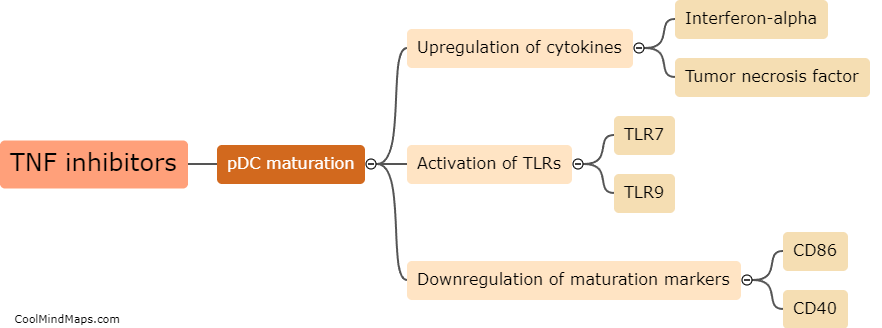What is the relationship between an increase in IFNα response and paradoxical psoriasis?
An increase in the interferon alpha (IFNα) response has been found to be closely associated with paradoxical psoriasis, a phenomenon observed in some patients with autoimmune disorders. IFNα is a cytokine that plays a crucial role in regulating immune responses against viral infections and is commonly used as a therapeutic agent in conditions like chronic hepatitis B and C. However, in some cases, the use of IFNα can trigger or exacerbate psoriasis symptoms. The exact mechanism behind this relationship is not fully understood, but it is believed that the increased IFNα response may disturb the delicate balance of immune regulation in individuals prone to psoriasis, leading to the development of the paradoxical reaction. Further research is necessary to gain a deeper understanding of this relationship and develop strategies to minimize the occurrence of paradoxical psoriasis in patients receiving IFNα therapy.

This mind map was published on 13 July 2023 and has been viewed 253 times.











